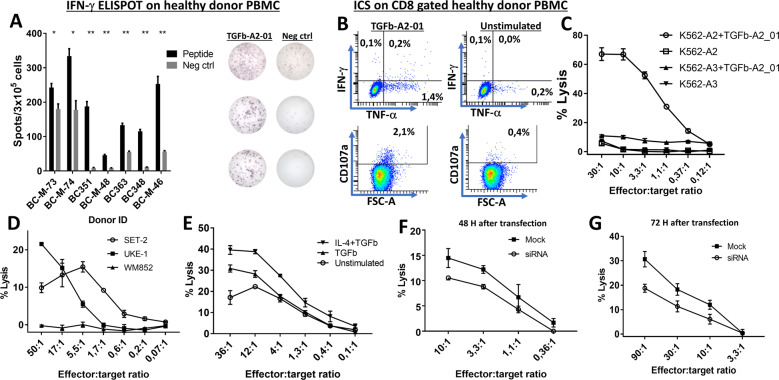Fig. 6.
CD8+ T cells specific for an HLA-A2 binding 9-mer epitope in the TGFβ signal peptide sequence readily kill TGFβ-expressing HLA-A2+-specific cancer cell lines in an HLA-A2- and TGFβ-dependent manner. A Healthy donor PBMCs secrete IFN-γ upon stimulation with the HLA-A2 binding 9-mer epitope TGFβ-A2-01 after 14 days in vitro culture (left), representative ELISPOT responses (right). B Intracellular cytokine staining of healthy donor PBMCs stimulated with TGFβ-A2-01 gated on CD8+ T cells with analysis of IFN-γ and TFN-α expression (top) and expression of CD107a (bottom). C TGFβ-A2-01-specific CD8+ T cells from a healthy donor used as effector cells against TGFβ-A2-01-pulsed HLA-A2+ target cells, nonpulsed HLA-A2+ target cells, and peptide-pulsed HLA-A3+ target cells. D TGFβ-A2-01-specific CD8+ T cells were used as effector cells with the HLA-A2+ cells UKE-1, SET-2, and WM-852 as targets in a Cr51 release assay. E THP-1 cells that were stimulated for 48 h with either TGFβ (5 ng/mL) alone or combined with IL-4 (200 U/mL) were used as target cells in a Cr51 release assay with TGFβ-A2-01-specific T cells as target cells. F Killing of THP-1 cells mock-transfected or transfected with TGFβ siRNA at 48 H after transfection. I Killing of THP-1 cells mock-transfected or transfected with TGFβ siRNA at 72 H after transfection

